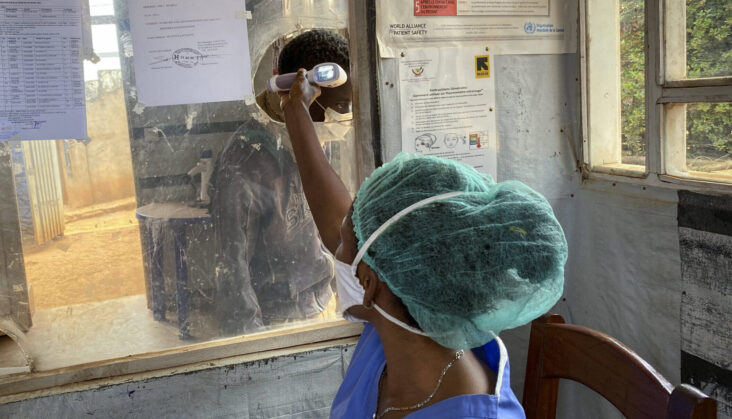Two Ghanaians from the southern Ashanti region tested positive for the extremely infectious Marburg virus. According to the World Health Organisation (WHO), although the tests came out positive in Ghana, they need to be sent to the Institut Pasteur lab in Senegal for confirmation.
If confirmed, these will be the second and third cases of the Marburg virus in West Africa. The first was discovered in Guinea in August, but the outbreak was declared over five weeks later as no new cases were discovered.
The WHO has said that “preparations for a possible outbreak response are being set up swiftly as further investigations are underway”. The agency has deployed a team of experts to support the Ghanaian health workers.
What is Marburg?
The Marburg virus is linked to exposure to caves or mines housing colonies of Rousettus bats. Humans can catch it through contact with bodily fluids of infected persons or contaminated surfaces and materials. It comes from the same family as the Ebola virus. The rare but extreme haemorrhagic fever affects both human and non-human primates.
There have been 12 major outbreaks since 1967, mostly in southern and eastern Africa, including Angola, Kenya, South Africa and Uganda. Fatality rates ranged from 24% to 88%, depending on the virus strain and case management, according to the WHO. Although there are no approved vaccines or antiviral treatments for the disease yet, intravenous rehydration and treatment of specific symptoms can help.
The first symptoms are a high fever, severe headache and general discomfort. Unfortunately, the two patients in Ghana did not survive.
Dr. Francis Kasolo, the WHO representative in Ghana, said the two unrelated patients from the southern Ashanti region showed symptoms including diarrhoea, fever, nausea and vomiting.
Latest developments
The Ashanti Regional Health Directorate of the Ghana Health Service said it had quarantined 34 people the two victims had come in contact with. Fortunately, no new cases have been discovered since the first samples were taken two weeks ago. Those under quarantine will nevertheless continue to be monitored for the 21-day maximum incubation period.
“The health authorities are on the ground investigating the situation and preparing for possible outbreak response,” Kasolo says. “We are working closely with the country to ramp up detection, track contacts, and be ready to control the spread of the virus.”
Understand Africa’s tomorrow… today
We believe that Africa is poorly represented, and badly under-estimated. Beyond the vast opportunity manifest in African markets, we highlight people who make a difference; leaders turning the tide, youth driving change, and an indefatigable business community. That is what we believe will change the continent, and that is what we report on. With hard-hitting investigations, innovative analysis and deep dives into countries and sectors, The Africa Report delivers the insight you need.
View subscription options

